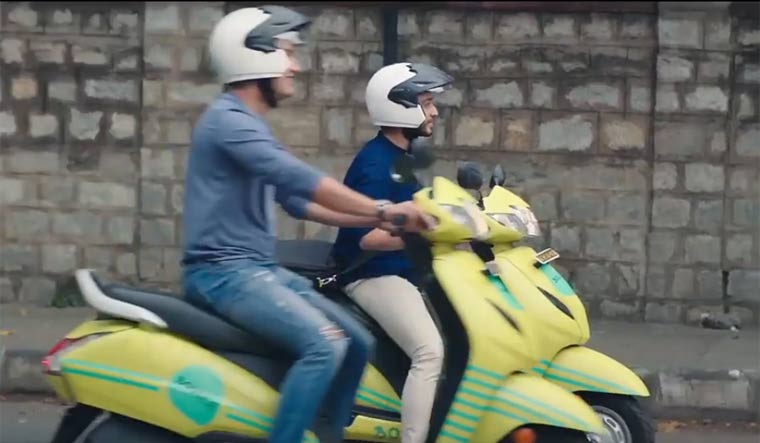Shared mobility is the way forward to decongest our cities. Bounce, which claims to provide the cheapest and most affordable commute globally and operates self-drive rental scooters and bikes in 36 Indian cities at Rs 1 per kilometre, offers much hope to our traffic-choked cities. Allowing customers to commute from anywhere to anywhere, Bounce has become an instant hit. However, it has been a bittersweet journey for the Bengaluru-based startup—around 23 of its bikes and scooters were vandalised recently in Bengaluru and Hyderabad.
‘’We operate only in Bengaluru and Hyderabad in a dockless model. In other cities we have a different model which we call the Kirana model, where we partner with local Kirana outlets. They invest in the scooters or we give them money to take care of our operations. In those cities, you have to pick up a scooter at one hub and drop it at another hub. So the model is pretty different and given that it is supervised, cases of vandalism and theft are zero,’’ says Ankit Acharya, lead, corporate communications at Bounce.
Lack of civic sense in the society upsets Joel Varghese Thomas, 20, a Bounce bike user based in Bengaluru. “I guess we don't deserve such conveniences when our sense of civic duty is pathetic,’’ says Joel. “We don't think twice before throwing the used wrapper or the household waste on the roads even when we have designated spots and fines to enforce rules. The startups can't rely on us because we perceive all public property as something to 'use and throw' as we are culturally brought up in such an environment,” he says.
We need to develop a sense of common ownership, says Sharon Diwakar, a Bounce customer, who works with an IT company in Whitefield. “Vandalism or destroying things for pleasure is a sign of sadism,’’ she says. “Teenagers sometimes get disruptive because of hormonal changes. They want to be heard. They are unhappy in life and they express their unhappiness on what you perceive to be the government or the common property,” Diwakar observes.
Meanwhile, Bounce has come up with stringent policies to combat vandalism. “For instance, we warn, penalise and ban users who take our scooters outside Bengaluru. Technology also comes in handy to prevent vandalism of the self-drive rental bikes. “We have come up with Bluetooth sensors in the helmet. Only if you end the trip on the scooter, and place the helmet, will the ‘end trip’ work. Else, it will pop up a message saying the helmet is not detected on the scooter. For fuel, we work on a mesh technology, which doesn’t allow the user to remove fuel from the scooter,” says Acharya.
“We also have GPS on our scooters. One is a primary GPS which is on the front panel of the scooter. The second is one which is embedded in the body of the scooter. So, stealing a Bounce scooter is next to impossible,” he says, adding that the company is also working with the police to tackle vandalism and theft.
Bhaskar Rao, the Commissioner of Bengaluru City police, has issued a statement saying any kind of vandalism to shared mobility or public asset will be considered as a criminal offence. The government recognizes our effort for shared mobility.’’
Bounce operates around 20,000 dockless scooters—17,000 in Bengaluru and 3,000 in Hyderabad. “People should understand that if they continue vandalising Bounce scooters and we cease to operate, they will have to go to the traditional mode of transport like cabs, buses and autos. Cabs don’t come on time and autos don’t go by metre,’’ reminds Acharya.
Diwakar feels civic sense is the need of the hour. “Indians don’t seem to bother much about it,’’ she says. “Honour is a very big thing in countries like Japan. They uphold their honour even at the verge of death,’’ she adds.
“It was so heartwarming to see the honour system in play (in other countries). It works so well, that too, without surveillance,’’ Diwakar says, adding that social crimes like vandalism can be prevented in India by cultivating civic sense.



